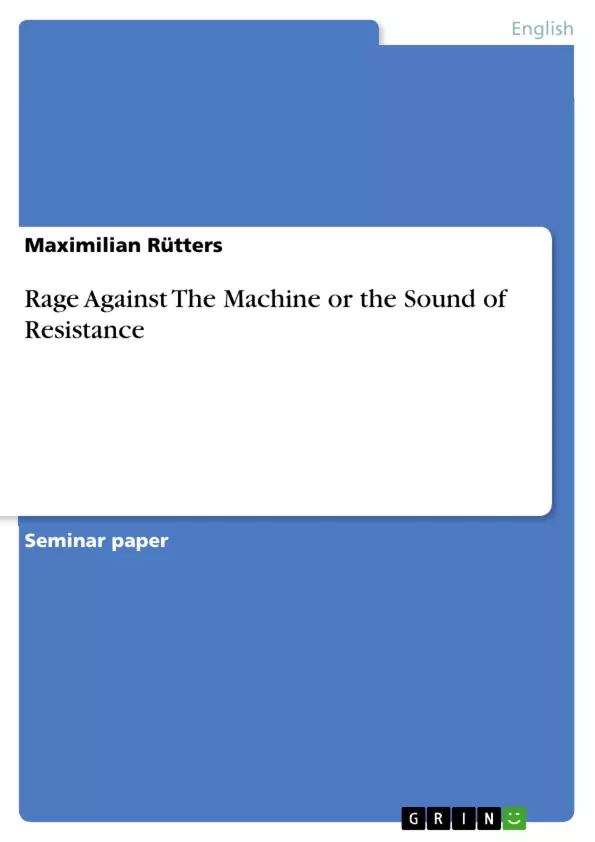Historically seen, music has always accompanied humanity in large part. People have different soundtracks for many parts of their lifes. Music is an important part of our everyday life and of our culture. It is able to form identities and a feeling of togetherness.
The topic of this term paper is music and especially the function of music within a cultural setting. Music has the ability to be used politically, to affect people and to manipulate people. Music can also be used as a social protest - as resistance. At the same time music and politics are going hand in hand for many years.
Musicians, or bands are used for political purposes in many different countries. During the late 1990s the British band Oasis helped Tony Blair and his party in their election campaign. Having said that musicians play songs against certain campaign or ban the usage of their music for political purposes, like the band Queens who did not allow President Trump to misuse their music for his intentions.
Table of Contents
- Introduction
- Definitions of Popular Culture, Gramsci's hegemony and Identity
- Different ways to define Popular Culture
- Antonio Gramsci and the concept of hegemony
- Popular Music as a part of Popular Culture
- The sound of resistance
- Rage Against the Machine as the embodied protest
- Conclusion
Objectives and Key Themes
The main objective of this term paper is to analyze the role of music, specifically popular music, within a cultural setting. The paper aims to explore the relationship between music and political resistance, focusing on the American band Rage Against the Machine and their performance of the song "Killing in the Name" at the Woodstock Festival 1999.
- The relationship between popular culture, identity, and hegemony
- The role of popular music as a form of social protest and resistance
- The concept of cultural hegemony and its influence on popular culture
- The significance of Rage Against the Machine's music as a counter-hegemonic force
- The complex relationship between music, politics, and social movements
Chapter Summaries
The first chapter provides a comprehensive introduction to the topic of music and its cultural significance. It highlights the importance of music in forming identities and fostering a sense of togetherness, as well as its potential for political influence and social protest. The second chapter delves into the multifaceted nature of popular culture, offering various definitions and perspectives on its role in society. It introduces the concept of cultural hegemony as a key framework for understanding the relationship between power, culture, and identity. The third chapter examines the relationship between popular music and social protest, highlighting its potential to challenge dominant narratives and provide a voice for marginalized groups. This chapter will focus on Rage Against the Machine as a prime example of a band that has used their music as a platform for resistance.
Keywords
This term paper focuses on key concepts such as popular culture, identity, hegemony, popular music, social protest, resistance, counter-hegemony, and the American band Rage Against the Machine. These keywords highlight the paper's exploration of the complex interplay between culture, politics, and music, particularly in relation to the role of music as a tool for social change and the challenge of dominant narratives.
- Quote paper
- Maximilian Rütters (Author), 2018, Rage Against The Machine or the Sound of Resistance, Munich, GRIN Verlag, https://www.hausarbeiten.de/document/434383


